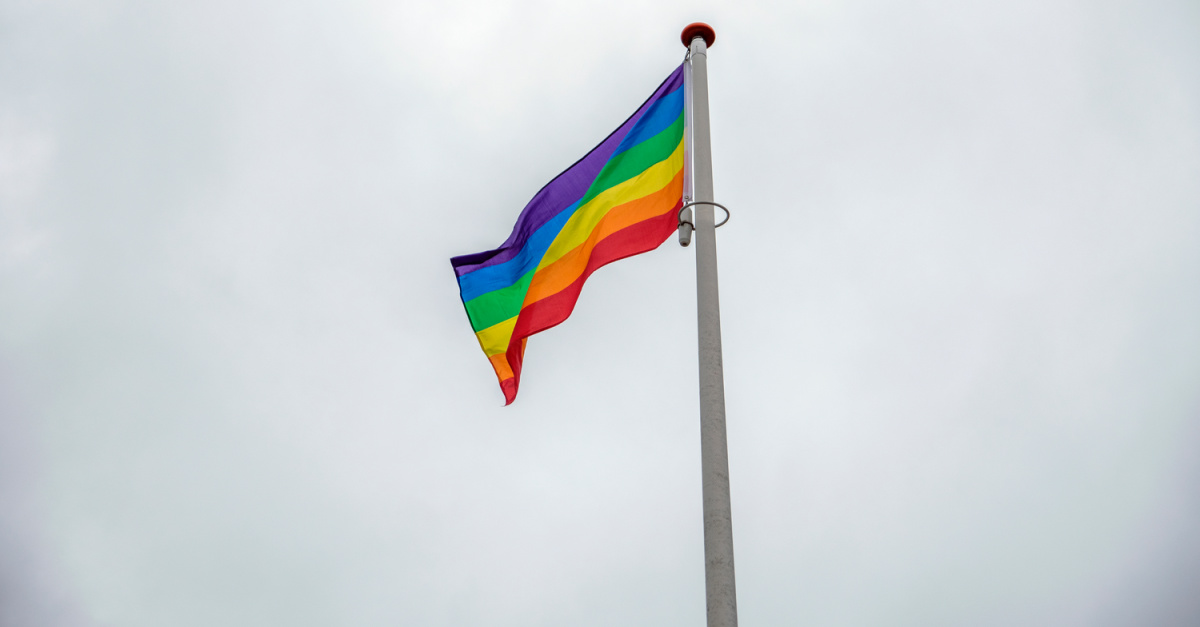

The United Methodist Church, one of the nation’s most historic denominations, removed its bans on LGBTQ+ clergy and same-sex weddings during a vote Wednesday that wasn’t a surprise but was nevertheless historic due to the body’s influence on the culture and the Christian community.
UMC delegates, during a morning General Conference session on May 1, approved the changes as part of a “consent calendar” that included nearly two dozen pieces of legislation, according to United Methodist News. It passed by a vote of 692-51 (93 percent approval). The legislation on gay pastors overturned a 1984 ban on “self-avowed practicing” LGBT individuals. The legislation on marriages prohibits superintendents from penalizing churches and pastors who hold same-sex weddings.
The outcome became a near-certainty after conservative churches fled the denomination in recent years due to its refusal to stand firm on biblical orthodoxy. Many of the churches are joining the Global Methodist Church, a new denomination launched in May of last year by conservative Methodists. Roughly one-fourth of UMC churches in the United States left the denomination.
Other changes are expected this week.
This week’s historic vote overturned decades of orthodox teaching on sexuality and gender. In 1976, the General Conference added language to its documents stating, “We do not recognize a relationship between two persons of the same sex as constituting marriage.” In 1984, the General Conference voted to prohibit “self-avowed practicing homosexuals” from being considered candidates for ministry. Although the 1992 General Conference upheld that language in a 710-238 vote, liberals kept making inroads. Although conservatives barely won a vote on the issue of homosexuality in 2019, the breakdown was nearly 50-50.
Karen Oliveto, the denomination’s first openly gay and married bishop, applauded the vote.
“I have loved this church, even when it didn’t quite know how to love me back. I loved it because it was a vessel of God’s grace, in spite of its flaws,” she told United Methodist News. “I loved it still even when it suddenly made God’s love conditional through harmful language about LGBTQ people and the way it sought to limit our role in its life and ministry.”
However, others have said that the change will have a negative impact.
Mark D. Tooley, a United Methodist and president of the Institute on Religion & Democracy, told The Washington Times that the denomination is dying.
“The clergy who are age 55 or in their early 50s, they’ll be able to survive till retirement,” he said. “But if you’re a clergy in your 30s or 40s, you should be very troubled because the money is going to run out, and the number of churches available to host a pastor, to be able to afford a full-time pastor, are going to dramatically reduce.”
Liberals within the denomination have “waited decades for this to happen, but mostly they’re not acknowledging what the impact is going to be,” he added.
“It’s a very celebratory General Conference that I think [is] not fully prepared for what’s about to happen,” Tooley said.
Theologian and author Albert Mohler Jr. said the denomination “abandoned Biblical Christianity.” Mohler is president of Southern Baptist Theological Seminary in Louisville, Ky.,
“The United Methodist Church committed theological treason yesterday, leaving Biblical Christianity behind in a headlong rush to join the LGBTQ revolution,” Mohler wrote in a World Opinions column. “… John Wesley’s holiness movement, once America’s largest denomination, now reduced to a shadow of its former self, abandoned the Christian faith and established a new religion with the celebration of LGBTQ sexuality at the center. A mighty movement that John Wesley had founded to bring holiness and piety to the Church of England surrendered to the revolution pushing the new sexuality and radical gender ideologies — and it did so with gusto.”
The United Methodist Church was established in 1968 through the merger of the Evangelical United Brethren Church and the Methodist Church. It is the second-largest non-Catholic denomination in the United States.
Photo Credit: ©Getty Images/Robert vt Hoenderdaal
Michael Foust has covered the intersection of faith and news for 20 years. His stories have appeared in Baptist Press, Christianity Today, The Christian Post, the Leaf-Chronicle, the Toronto Star and the Knoxville News-Sentinel.





